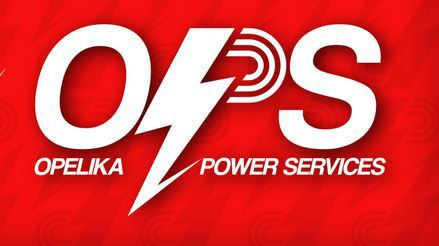By Gary Fuller
Mayor of Opelika
Editor’s note: The Observer has published several letters to the editor critical of city-owned and operated fiber optics systems and Opelika’s, in particular. Here are Mayor Gary Fuller’s views on the topic.
Opelika Power Services, a department of the city of Opelika, has been Opelika’s community-owned power company since 1911. OPS also is a world-class broadband provider utilizing a 100 percent fiber-to-the-home optic network offering TV, telephone and Internet throughout Opelika.
We’re proudly recognized as Alabama’s first GIG city. The broadband division is known as OPS ONE.
Filling a need
We were a reluctant entrant into the broadband marketplace. Before 2010, broadband service in Opelika was supplied by one major cable provider. This monopoly provider made sizable profits without investing much money into its network.
There was no competitive pressure to improve. The business plan of the incumbent was to maximize revenue. Meanwhile, most folks in Opelika complained of high prices, inferior quality, slow speeds, poor customer service and lack of competition.
Because the city did not want to enter the broadband market, we first went to another large private cable and telephone company and asked if they would be willing to deploy a broadband network within Opelika. They refused, stating that Opelika was too small a market to make such a large investment.
The city decided to build the next generation network itself.
The city council and I recognized the economic benefits of faster, cheaper and more reliable Internet services. Frustrated by a lack of competition, Opelika residents voted overwhelmingly in favor of the city building an FTTH (FTTH means Fiber to the home) network. In Opelika, all residents and businesses now have access to high-speed Internet, cable TV and telecommunication services.
It is without dispute that Opelika’s entry into the market has increased competition. And that’s good for everyone.
The facts:
1. OPS ONE is not taxpayer-funded, does not rely on any tax subsidies and pays all its own expenses. Moreover, no state or federal grants or subsidies have been used to build or operate Opelika’s network.
2. Expenditures: Opelika spent $20 million to build the FTTH network. We spent an additional $23 million to modernize our electric grid and to build a new OPS facility. The state-of-the-art Smart Grid allows OPS to provide better reliability and greater efficiency to its electric customers.
3. The GIG: On Feb. 7, Opelika City Council approved a new price of $94.99 for gigabyte service with certain packages. With the new affordable price, OPS projects that demand for gigabyte service will increase substantially.
OPS ONE is a success story. Some argue that publicly funded Internet projects are a universal failure. The bottom line is that OPS ONE is doing just fine and is getting stronger each year.
We signed up our first broadband customer in October 2013. After only three years in operation, OPS ONE has more than 3,000 subscribers and is generating annual gross revenues of approximately $5.5 million. It is obvious that OPS ONE is receiving grassroots support in the community.
Spurring job growth
It is not unusual for capital intensive projects to show a loss in the early years of operation. Rapid growth in capital expenditures is a natural part of any start-up enterprise. Our business plan projected losses during the first five years of the project. OPS is meeting all projections in the business plan.
High-speed access to Internet services is a key requirement for citizen participation in the 21st century. Municipal telecommunications and broadband networks are not new. More than 143 municipalities provide broadband services.
Many municipal utilities have successfully offered broadband to their customers as an adjunct to their electric or other utility services. Local governments provide needed broadband services to address community needs.
OPS ONE also contributes to the well-being of the local economy. It is, without dispute, that the FTTH broadband network in Opelika has spurred job growth.
The Auburn-Opelika area has seen the largest total employment growth in Alabama. In fact, in December 2016, Milken Institute named the Auburn-Opelika Metropolitan Statistical Area as the sixth best performing small city in the United States. The Auburn–Opelika area is among the leaders in Alabama in job creation, wage gains and technology trends.
A proven
investment
According to Moody’s Investors Service, Opelika’s bond rating is Aa2, which is among the highest ratings in the state of Alabama. This bond rating reflects a solid financial position marked by healthy reserves and a stable tax base. The local economy is expanding, and city government is in excellent financial condition. The deployment of the FTTH network has not adversely affected the financial condition of the city.
We’re very proud of the success that OPS ONE has achieved for the city of Opelika. It has created a competitive broadband environment in our community and is offering superior infrastructure to our subscribers at competitive prices.
For nearly two decades, AT&T, Comcast, Time Warner Cable and Charter Communications have spent millions of dollars to lobby state legislatures, influence elections and buy “research” to stop the spread of public Internet services that often offer faster speeds and cheaper rates. These companies have succeeded in getting laws passed in 20 states that ban or restrict municipalities from offering Internet to residents.
Competition helps consumers
Cable and broadband companies have tried to undermine municipal networks by paying for research from front groups such as Taxpayer Protection Alliance.
Instead of improving broadband and infrastructure, these companies have spent millions to resist competition by the municipal networks. In our view, competition is preferable to regulation in a competitive market.
It is important that legislators and policymakers recognize the vital role competition plays in achieving better Internet services.
In summary, we are extremely proud of OPS ONE and are confident that it is well-positioned for the future. The system is offering the fastest Internet service in the country at competitive prices.

